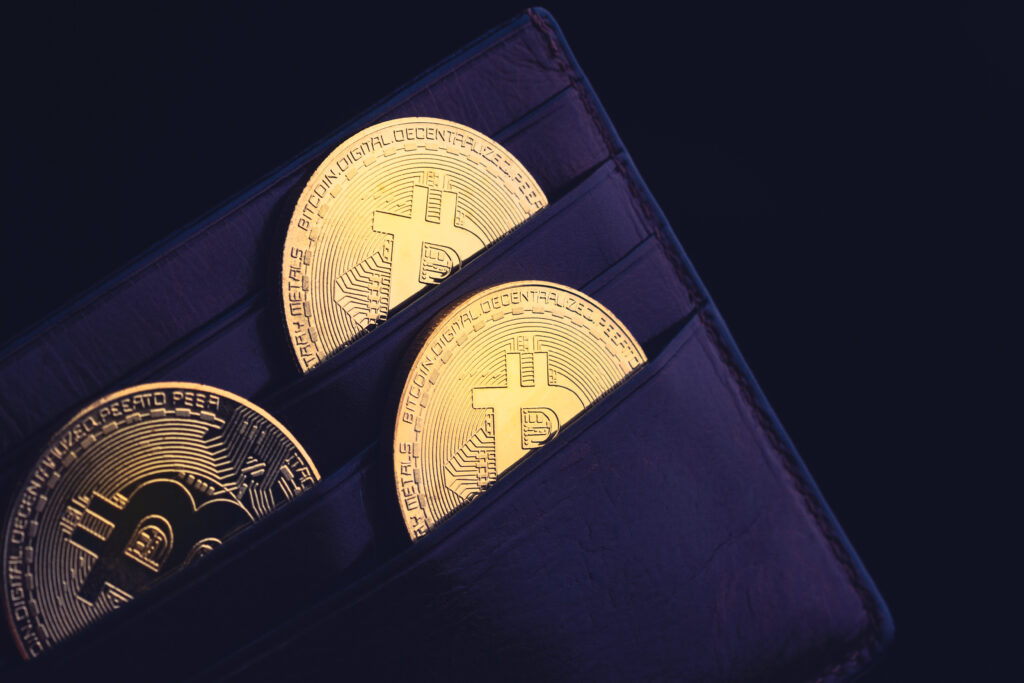
For anyone interested in trading cryptocurrencies, the first step in buying cryptocurrency is choosing a crypto exchange. Unlike stocks and bonds, cryptocurrencies represent a relatively new asset. As a result, the various exchanges that have emerged over the last couple of years all differ slightly, bringing with them a host of unique pros and cons.
What is a crypto exchange?
A crypto exchange is a platform where users can buy, sell, or exchange different cryptocurrencies and, in some cases, fiat currencies. You can think of a crypto exchange as an online brokerage for trading stocks, such as Schwab, Fidelity, or TD Ameritrade. Today, there are an estimated 500 cryptocurrency exchanges, though the exact number is a moving target.
What should I look for when choosing an exchange?
There’s no perfect exchange because all investors are different. When choosing which exchange to trade on, it’s essential to consider the key features each one has to offer.
Fees
 One of the most common concerns any crypto investor should have is the cost associated with trading. Cryptocurrency exchanges make money through various fees, including:
One of the most common concerns any crypto investor should have is the cost associated with trading. Cryptocurrency exchanges make money through various fees, including:
- Trading fees when buying, selling, or exchanging cryptocurrency
- Borrowing or trading on margin
- Withdrawals
You may notice that every crypto exchange seems to charge different fees. A larger, centralized exchange (CEX) like Coinbase or Gemini charges higher fees in exchange for a friendlier user experience, insurance, and other features.
Another reason why crypto exchange fee schedules can vary so much is supply and demand. When orders are placed, miners verify each transaction before it’s finalized. In exchange for their work, miners get payment rewards. When a crypto network sees increased activity, miners are more selective about which transactions they choose to verify. To incentivize miners, an exchange may pay a higher fee to miners to help ensure transactions are verified quickly.
The size of trades can also influence fees, with “makers” paying a lower fee than “takers.” Makers are those who create liquidity by placing large orders that are greater than the current demand on the other side of the trade. For example, a maker might include an institution that places a sizable bitcoin trade that creates a market for smaller investors – or takers – to immediately buy or sell bitcoin. In other words, makers don’t get their orders filled immediately because there isn’t a single buyer immediately willing to assume the opposing side of the trade.
Since market makers offer the much-needed liquidity to fill the orders of a group of takers, exchanges offer incentives to makers in the form of lower fees.
Finally, some exchanges, like Binance, offer lower fees if you use the platform’s token (in this case, BNB) to trade.
Prices
There isn’t an exact process for pricing cryptocurrencies, so you’ll often find that prices for a digital currency can vary noticeably across different exchanges. Ultimately, this discrepancy is caused by inefficiencies in setting a uniform price across markets, mainly because supply and demand on each exchange can be so wide-ranging. Trading volume can also cause mismatching prices across exchanges.
Ordinarily, arbitrage trading across different platforms would help stabilize prices, but since moving crypto assets in and out of exchanges can be costly and difficult, prices can remain distorted for longer.
On an exchange with low trading volume, inadequate liquidity can make trading difficult, which is why BitIRA partnered with a top exchange company called Galaxy Digital. Our exchange partner holds over $2.3 billion in managed assets and specializes in web3 technology. As a publicly traded company, Galaxy brings the transparency and trust that our customers want in a cryptocurrency exchange. Galaxy’s partnership with BitIRA offers all its digital IRA customers access to the deep liquidity and stable pricing typically found with large institutional investors.
Cryptocurrencies on offer
A key consideration to take into account when choosing an exchange is which cryptocurrencies are available on the platform. Some exchanges, like Gemini, currently offer around 40 cryptocurrencies; others, like Gate.io, allow you to trade 1,000 different cryptocurrencies. Take a look at how many (and which) cryptocurrencies an exchange supports before choosing to sign up.
Remember also that more isn’t always better. Additional cryptocurrency offerings may increase the costs of maintaining and supporting the exchange (and could even introduce new vulnerabilities) without directly benefiting you, the individual investor.
Order types
Depending on your trading style, you’ll want to make sure the exchange you use can support all the order types you need. There are instant orders, market orders, limit orders, stop-limit orders, trailing stop orders, and more. Order types are an essential feature of exchanges because they allow you to execute your trading strategy more precisely.
The crypto market is constantly changing, subject to fast and frequent price swings, and never stops trading. Being able to leverage different order types will help your orders get filled at the prices you set, even when you’re not physically present to execute the trade. In addition, certain order types like a limit order can help investors avoid costly errors due to slippage, which we’ll explain next.
Trading volume
 We mentioned the importance of trading volume earlier, an important cause of the common phenomenon known as slippage. Slippage isn’t a problem unique to cryptocurrency, but it poses a more significant challenge in the crypto market than equities or forex trading. Slippage occurs when an order is placed at one price, but in the short delay between the placement of the order and its execution, that price has changed.
We mentioned the importance of trading volume earlier, an important cause of the common phenomenon known as slippage. Slippage isn’t a problem unique to cryptocurrency, but it poses a more significant challenge in the crypto market than equities or forex trading. Slippage occurs when an order is placed at one price, but in the short delay between the placement of the order and its execution, that price has changed.
Since prices can go up or down at any time, slippage can work to the benefit or detriment of trades, depending on which direction the price has moved. Slippage is more common and more severe when trading volume is low. A smaller crypto exchange that does less volume will suffer from more extreme slippage, while a larger exchange will be far less likely to have problems with slippage due to higher trading volume (but slippage can happen with any cryptocurrency on any exchange).
Security
Protecting your assets is critical, and you should take time to verify the safety of any exchange you’re considering. An important consideration for exchange security is choosing between a centralized exchange and a decentralized exchange (DEX).
While centralized exchanges do make a concerted effort to beef up security protocols and require users to verify their identities, many people worry about the fact that there is a centralized server that can be targeted for attack and that CEXs hold users’ personal data and private keys. On the other hand, a DEX offers complete transparency, requires users to hold their own private keys, has no centralized server, and relies on cold (offline) storage to avoid attacks.
Privacy
From its origins, cryptocurrency has prioritized privacy and the ability to remain pseudonymous. While crypto itself is still pseudonymous, some exchanges link your crypto assets to your identity. In compliance with government regulations, centralized exchanges like Gemini, Kraken, and Coinbase require users to go through FinCen’s know-your-customer (KYC) verification.
KYC standards are used to deter criminal activities like funding terrorism, money laundering, fraud, and tax evasion. KYC requirements establish a greater level of trust between users and exchanges. However, some individuals may be uncomfortable sharing personal identity information if they prefer anonymity.
User interface
Every crypto investor has different preferences regarding what’s most important when choosing an exchange. For newer investors, the user interface may be a priority. An excellent user interface helps make trading crypto a seamless, pleasant experience. Typically, an exchange with a well-designed user interface will have higher fees. Coinbase, Kraken, and eToro offer attractive designs and platforms that are easy to navigate but are known for charging higher fees than many other exchanges.
How do I decide which cryptocurrency exchange is right for me?
Cryptocurrency exchanges are in heated competition with one another, trying to attract investors of all experience levels to their platforms. Right now, crypto exchanges are desperate to grow their user base and increase liquidity so they can remain relevant as crypto becomes mainstream.
Most exchanges are currently offering sign-up bonuses, but don’t let a little freebie influence the vital decision of deciding where to trade; in the long run, it’s important to choose the exchange that best meets your trading needs.
Level of experience
Choosing the right crypto exchange often starts with your level of experience investing in digital currencies. Investors with a deep understanding of crypto trading and extensive experience likely won’t see the value in paying higher fees for a better user interface.
Newer investors getting their feet wet with crypto trading will appreciate all the educational information available on certain exchanges, as well as the intuitive design of the platform.
Which cryptocurrencies do you want to trade?
Every crypto exchange offers different tokens and crypto pairs. If you’re looking to trade mainstream crypto like bitcoin and ethereum, any exchange should support that (keep in mind that not every exchange supports buying BTC or ETH with fiat currency).
For more speculative crypto traders looking to invest in new or specialty tokens, the exchanges that offer those cryptocurrencies may limit you to a select few. Before opening your account, be sure to check that you can trade the pairs you want.
How much do I intend to trade?
How much crypto you intend to trade can be an important factor in deciding which exchange to use. Again, trade volume plays an important role here for two reasons. First, buyers and sellers of large crypto positions may find it challenging to make the trades they want on smaller exchanges with low liquidity. Second, most exchanges offer discounts for traders who deal in large quantities because they benefit from the added liquidity these investors bring.
Am I okay with hot wallets controlled by the exchange?
 Centralized exchanges control your crypto using hot wallets, which are wallets that are connected to the internet. Hot wallets enable faster trading but tend to be more vulnerable to attacks.
Centralized exchanges control your crypto using hot wallets, which are wallets that are connected to the internet. Hot wallets enable faster trading but tend to be more vulnerable to attacks.
Decentralized exchanges that use cold storage are safer, though they require users to memorize or document their private keys. If you forget your private keys, your funds are as good as gone, as there’s no password reset option for crypto keys. The choice between decentralized and centralized exchanges and hot and cold storage boils down to whether you prefer convenience and speed or privacy and security.
Check out our hot vs. cold wallets comparison to learn more about these two options.
Are there any tools to help me compare?
Yes! BitDegree offers a cryptocurrency exchange comparison tool that lets you compare and contrast dozens of crypto exchanges.
Do you want your crypto investment tax-deferred?
Many of the leading crypto exchanges, like Coinbase, Kraken, Gemini, etc., are taxed like regular trading accounts. That means, if your digital currency investment grows and you sell your investment (realize a “gain”), you will be taxed on your earnings. However, if you invest in cryptocurrencies within a tax-deferred self-directed IRA (SDIRA), you can avoid taxes on the gains entirely with a Roth SDIRA or defer the taxes with a Traditional SDIRA until you withdraw during retirement. Learn more about investing in cryptocurrencies within an IRA here.
What are some popular crypto exchanges?
Here are the top cryptocurrency exchanges in 2022.
Binance
Pros:
- Offers 500+ cryptocurrencies to trade
- Low fees
- Reputable
- High liquidity
- Supports seven different types of orders
Cons:
- Can be difficult for novice users to navigate
- Limited options for U.S. customers
- Centralized
- Private keys are held for you
Coinbase
Pros:
- User-friendly interface/design
- Reputable
- Crime insurance to protect assets
- High liquidity
- Low minimum trade amount ($2) makes it easy to get started
- Educational content library to learn about crypto
Cons:
- High fees
- Doesn’t support some cryptocurrencies
- Private keys are held for you
- Poor customer support ratings
Gemini
Pros:
- $0 account minimum makes it easy to get started
- Supports minimum trades as small as 0.00001 BTC
- User-friendly interface/design
- Ten free crypto withdrawals per month
- Known for its security features
Cons:
- High fees
- Poor customer support ratings
- Doesn’t support as many cryptocurrencies as other exchanges
Kraken
Pros:
- History as one of the oldest exchanges
- Low fees for makers, Kraken Pro users
- Support for many different order types, including margin trading
- Live chat option
- Mainly relies on cold storage
- Solid selection of trading pairs
- Users maintain funds in their own wallet
Cons:
- May be more difficult for beginners to navigate
- Slower trading (due to 95% of funds being kept in cold storage)
- Limited funding options
- Not available in all 50 U.S. states
eToro
Pros:
- $0 account minimum
- No transaction or trading fees when buying crypto with cash
- Allows users to practice crypto trading
- Uses both hot and cold storage to combine speed and security
Cons:
- May be better for non-U.S. residents; not supported in all U.S. states
- Only 29 cryptocurrencies available for trading
- Poor customer support ratings
- Higher minimums than some other exchanges
